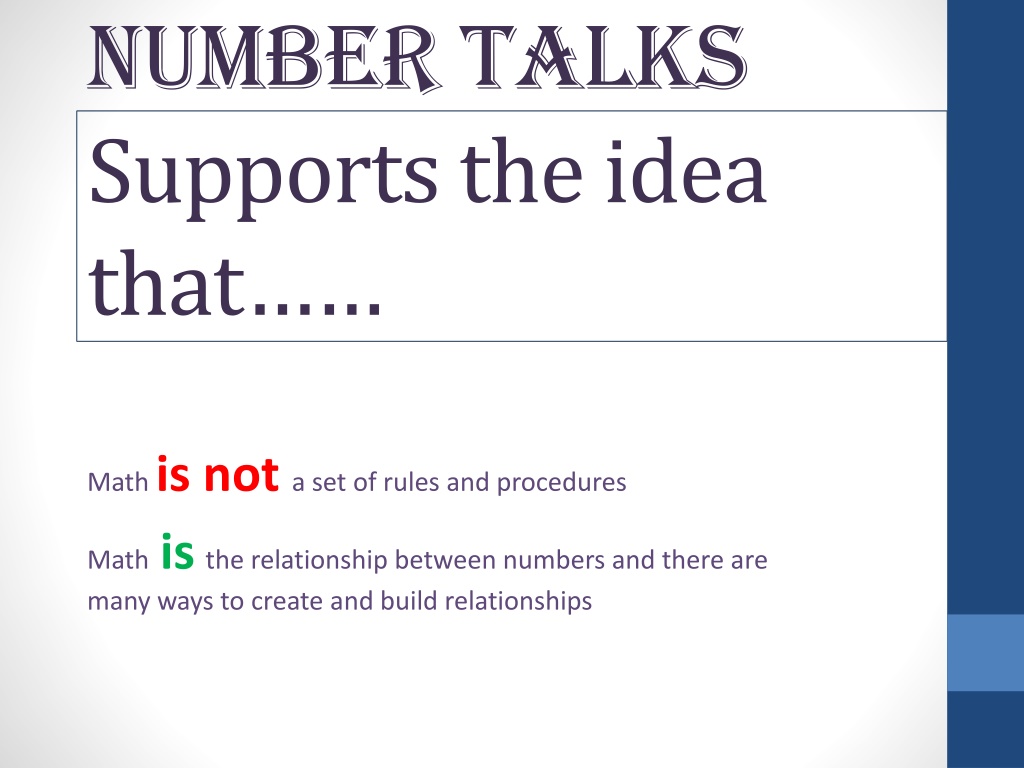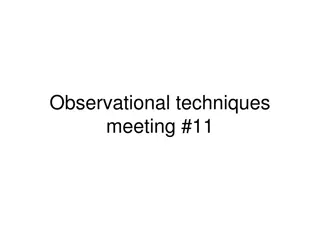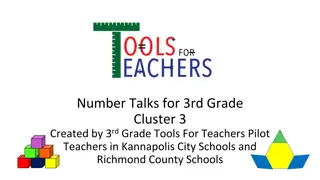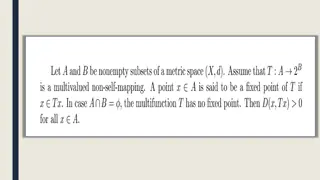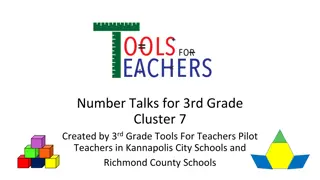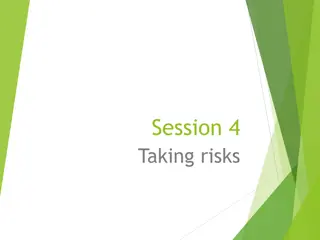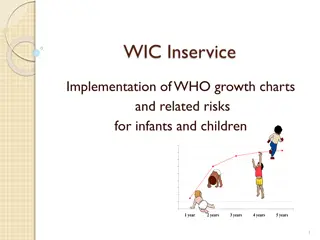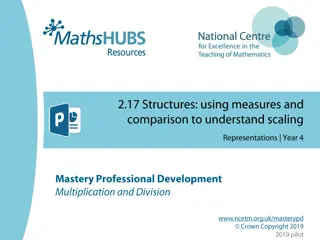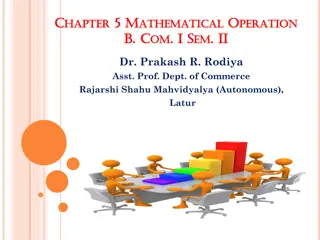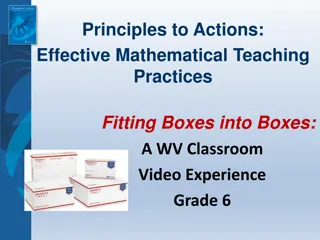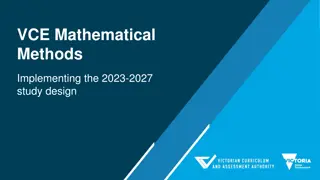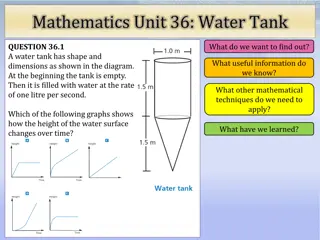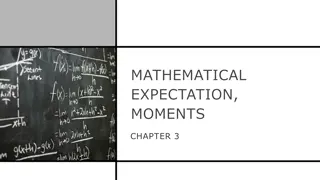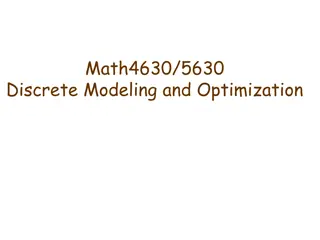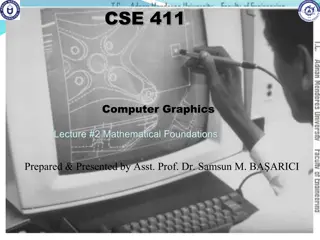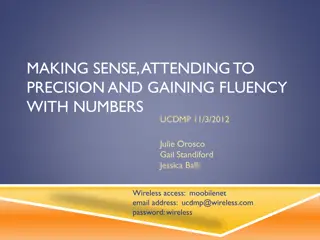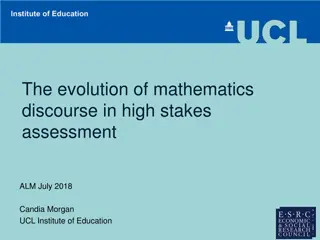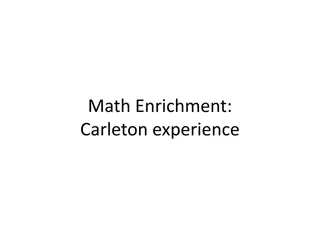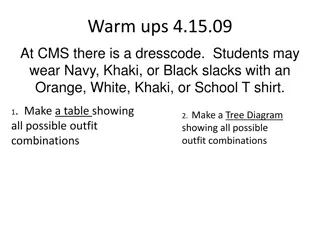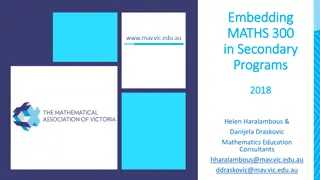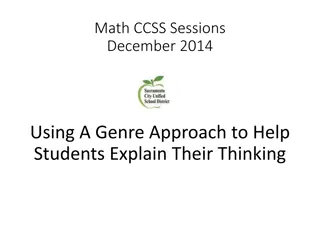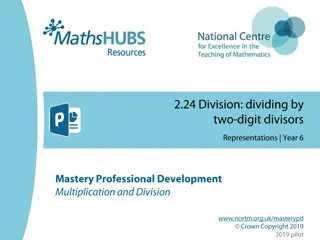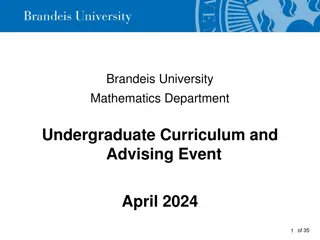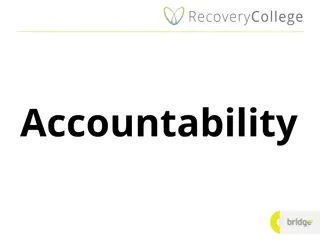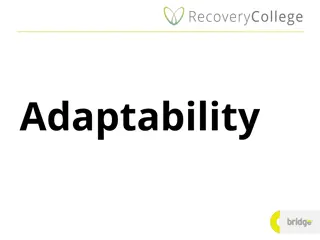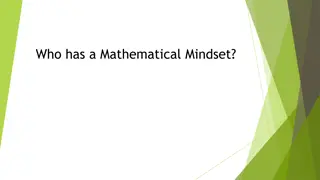Embracing Number Talks for Mathematical Growth
Number Talks support the idea that math is about relationships between numbers, fostering accuracy, efficiency, and flexibility in problem-solving. These discussions allow students to explore various strategies, encouraging a deep understanding of foundational mathematical concepts. Through open-ended questions and a guided approach, both teachers and students engage in a collaborative learning environment. Emphasizing multiple problem-solving pathways over simple solutions, Number Talks promote critical thinking and mathematical fluency.
Download Presentation

Please find below an Image/Link to download the presentation.
The content on the website is provided AS IS for your information and personal use only. It may not be sold, licensed, or shared on other websites without obtaining consent from the author. Download presentation by click this link. If you encounter any issues during the download, it is possible that the publisher has removed the file from their server.
E N D
Presentation Transcript
NUMBER TALKS Supports the idea that Mathis not a set of rules and procedures Math is the relationship between numbers and there are many ways to create and build relationships
Factors for Success in Math Accuracy-the ability to produce an accurate answer Efficiency-the ability to choose an appropriate strategy Flexibility-the ability to use number relationships
What is Number Talks? Number Talks are discussions about a particular problem that has been crafted in such a way that the key foundational ideas of mathematics can be evaluated and demonstrated These talks take about 5-15 minutes and are typically held 3-5 times a week. These talks allow students to share their thoughts and ideas about math. It can be taught in whole or small groups This gives you flexibility to meet the varying needs of your students. www.youtube.c om/watch?v=kfHxzcZKq3E
Designing a Number Talk Students get a chance to see the relationships and explore them silent thumb to give students think time. no answer is wrong. Students defend or dispute a strategy. students can agree or disagree with anyone in the class including themselves. Open ended questions allow the students to clarify and provide additional ideas share his/her thought process seeing that there truly are multiple ways to solve a problem.
The teacher is seen as a guide not the master.. -Students are asked to clarify their own thinking, consider and test strategies, investigate and apply relationships, and learn that making mistakes and taking risks can and does lead to success -Students don t simply find the solution to a problem and then move on. They are challenged to see how many different ways they can solve the same problem. THE CLASSROOM ENVIRONMENT AND COMMUNITY IS THE KEY TO SUCCESS.
First, the teacher must shift his/her thinking away from: What answer did you get? to How did you get that answer? Also, you have to teach your students to keep their comments on task or else your Number Talks will go on forever! There are a few challenges to implementing Number Talks.
Questions How is math currently taught in your classroom? What are the strengths/weaknesses in this area? What is your philosophy of math? How is your classroom environment structured? Do you have an extra 10 minutes in your day that you can devote to math discussions? How can you keep students on task during discussions?
Chapter 2 Preparing For Number Talks Procedures and Expectations 1- Designated Location 2- Provide wait time 3- Accept, respect, and consider all answers 4- Encourage student communication
Number Talks Location Whole class or small group Create a cozy intimate place Promotes conversation Wait Time Promote think time Silent thumb signal Wait until everyone is ready Encourage multiple ways
Number Talks Discussion Time l i s t e n Prompts help students formulate their answers in respect to matter Accept other peoples perspectives Be good listeners
Questions 1- What area will you designate in your classroom for Number Talks? 2- What signals will you use to allow for wait time? 3- How will you encourage/ensure all students to participate? 4- How will you scaffold conversations? 5- How will you hold the students accountable for the materials discussed?
Number Talks for Grades K-2 There are 4 goals for grades K-2 using Number Talks: (1) Developing number sense (2) Developing fluency with small numbers (3) Subitizing, (4) Making tens.
Developing Number Sense An awareness and understanding about what numbers are, their relationships, their magnitude, the relative effect of operation on numbers( mental math estimation) Fennell and Landis Goal of Number Talks is to further student s development of number sense Struggling students can not estimate or determine reasonable answers because they have memorized procedures and formulas
What Does Number Talks Look Like in the Classroom Dot images, rekeneks, five-frames, ten-frames, number lines, and hundred charts .. 1- Provide experiences 2- Connect math to real life 3- Learn how to anticipate your students thinking 4- Sections devoted to grade levels
Number talks focus - counting, building fluency, developing one-to-one correspondence and conservation of numbers Encouraged to give careful thought to visual and spacial arrangements of geometric models Each example includes instructions, a graphic, and what to discuss with those cutie kinders you are teaching. Kindergarten
GOAL- to provide students with opportunities to build fluency with numbers and develop addition strategies You will continue to utilize the tools and models of Kinder but you are focusing on the reasoning with numbers you have pages of graphics, instructions, and talks to use. There is also a list of addition strategies for you to use with your students. 1 2 3 4 5 6 7 8 9 10 1st
GOAL- to elicit and foster specific computation strategies. You start the year off with small numbers and grow into larger ones as the year goes on. start the year off with small numbers and grow into larger ones as the year goes on. 1 2 3 4 5 6 7 8 9 10 2nd
